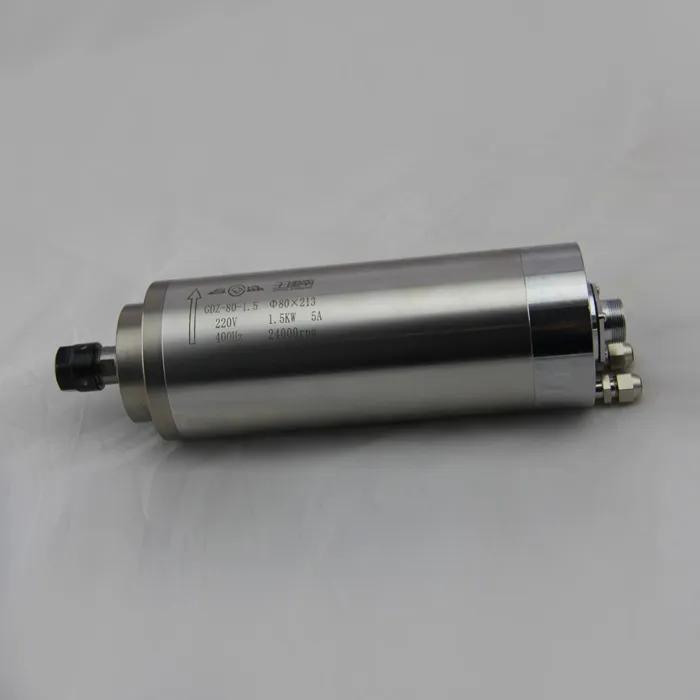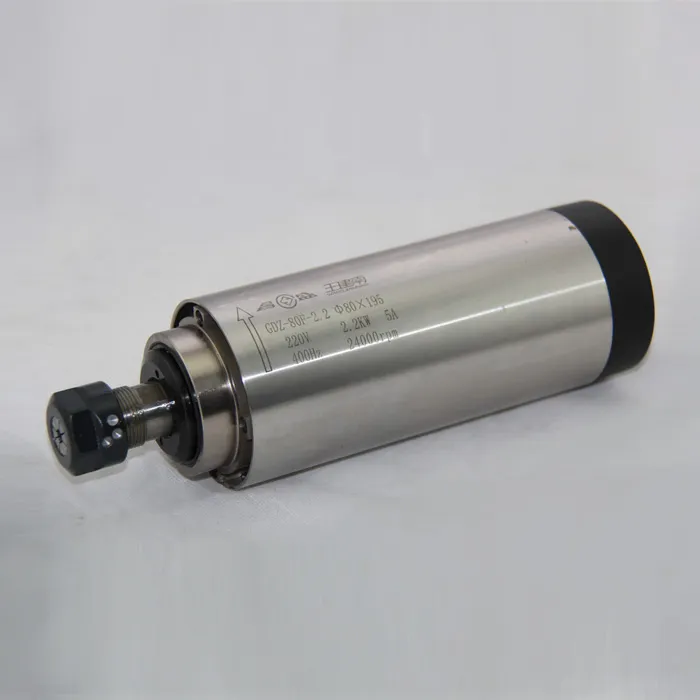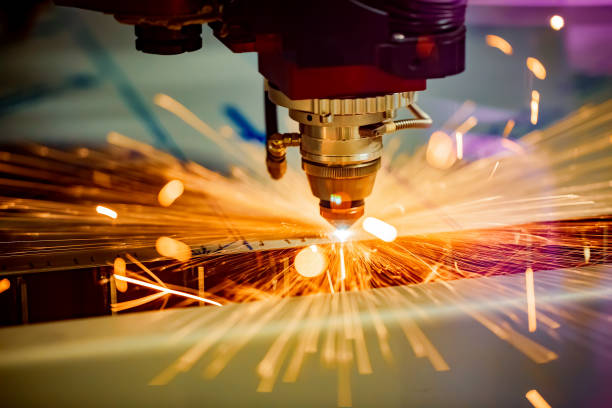In the world of precision manufacturing, CNC machinists play a crucial role. Their ability to operate complex CNC machines ensures that high-quality parts are made efficiently and precisely. If you’re considering a career in CNC machining, one of the key questions on your mind might be: how much does a CNC machinist make per hour? This guide will provide you with a complete understanding of CNC machinist salaries, including factors that influence pay, average wages across various regions, and how you can potentially increase your earning potential. Let’s explore the world of CNC machinist pay in detail.
What is a CNC Machinist?
Defining the Role
A CNC machinist is a skilled operator who works with Computer Numerical Control (CNC) machines. These machines are used to cut, shape, and create parts from materials such as metal, wood, or plastic. CNC machinists are responsible for setting up the machine, programming it, and ensuring that the final product meets the required specifications.
Key Responsibilities of a CNC Machinist
A CNC machinist’s responsibilities typically include:
- Setting up CNC Machines: Preparing the machine for production, installing tools, and setting parameters.
- Programming: Entering precise instructions for cutting or shaping parts.
- Operating the Machine: Monitoring the CNC machine to ensure it operates smoothly.
- Quality Control: Checking finished products to confirm they meet quality standards.
- Maintenance: Performing basic maintenance to keep machines in good working order.
Required Skills and Experience
To become a CNC machinist, individuals often need to acquire specific skills and undergo training. Key skills include:
- Mechanical Aptitude: Understanding how different machines work.
- Attention to Detail: Ensuring precision in every part produced.
- Programming Knowledge: Familiarity with G-code, the language of CNC machines.
- Experience: Most employers prefer candidates with at least 2-3 years of experience in machining or a related field.
Average Hourly Wage for CNC Machinists
National Average Hourly Pay
The average hourly wage for CNC machinists in the United States varies based on factors such as experience, geographic location, and industry. Generally, CNC machinists can expect to earn anywhere between $18 to $30 per hour. This variation is influenced by the complexity of the job, the type of CNC machine being operated, and the level of expertise required.
Entry-Level CNC Machinist Pay
For those just starting out in CNC machining, the hourly rate tends to be on the lower end. Entry-level CNC machinists typically earn between $15 and $20 per hour. This is primarily due to the need for experience in programming and operating CNC machines independently.
Experienced CNC Machinist Salary
With more experience, the hourly wage increases. Experienced CNC machinists, especially those skilled in working with 5-axis CNC machines or complex machining processes, can earn up to $30 or even $35 per hour. Those who take on additional responsibilities, such as supervising others or maintaining complex CNC machines, may see an even higher rate.

If you’re looking for high-quality CNC spindles to boost your efficiency, our 24000RPM 1.5KW ER16 Water-Cooled Spindle provides excellent performance for demanding applications.
Factors Influencing CNC Machinist Pay
1. Geographic Location
Where a CNC machinist works greatly impacts their hourly wage. Areas with a higher cost of living, such as cities in California or the Northeast, tend to offer higher wages. For instance, CNC machinists in San Francisco or New York may earn significantly more compared to those in rural regions.
| State | Average Hourly Wage |
|---|---|
| California | $28 – $35 |
| Texas | $20 – $28 |
| Ohio | $18 – $24 |
| Florida | $17 – $23 |
| Illinois | $22 – $30 |
2. Industry and Specialization
The industry in which a CNC machinist works can also affect their earnings. For example, machinists in the aerospace or medical device industries, which demand precision and high-quality parts, often earn more than those in general manufacturing or woodworking.
- Aerospace Machining: Average hourly wage of $28-$35.
- Automotive Parts Production: Average hourly wage of $20-$27.
- Medical Device Manufacturing: Average hourly wage of $30-$40.
3. Experience and Skill Level
Experience plays a significant role in determining pay. An experienced machinist with over 5 years in the field and knowledge of multi-axis CNC operations is likely to command a higher wage compared to a recent graduate. Skills in CNC programming using CAD/CAM software, like Fusion 360, also contribute to higher pay.
4. Type of CNC Machine
The type of CNC machine a machinist operates can influence their pay. Operators of 5-axis CNC machines, which are more complex and require specialized skills, often earn more compared to those working on 2-axis or 3-axis machines.
How to Increase Your Hourly Wage as a CNC Machinist
If you’re looking to increase your hourly pay as a CNC machinist, here are several strategies:
1. Gain More Experience
As with most professions, experience is key. With each year of experience, your ability to handle complex parts and different CNC machines grows, making you more valuable to employers. Seek opportunities to work on diverse projects and different types of CNC machines, such as lathe or mill.
2. Learn CNC Programming
Understanding CNC programming can significantly enhance your career prospects. Gaining proficiency in software like Mastercam or Fusion 360 will enable you to take on programming tasks, which are often compensated at a higher rate.
3. Specialize in High-Demand Areas
Focusing on high-demand industries such as aerospace or medical device manufacturing can lead to better pay. These industries require higher precision and complexity, which translates into better compensation for machinists.
4. Get Certified
Obtaining certifications such as NIMS (National Institute for Metalworking Skills) can increase your credibility as a CNC machinist. Employers value these certifications as they demonstrate a commitment to the craft and knowledge of the latest CNC technologies.

To get the most out of your CNC machining skills, consider investing in a quality spindle like our 2.2KW ER20 Air-Cooled Spindle, which provides reliable performance for high-precision machining.
Comparing CNC Machinist Salaries Across Roles
The role of a CNC machinist can vary significantly depending on their level of expertise, responsibilities, and the specific CNC machines they work on. Here is a breakdown of different CNC machinist roles and their respective earnings:
1. CNC Operator vs. CNC Machinist
A CNC operator generally handles the machine’s day-to-day functioning, whereas a CNC machinist is involved in setting up, programming, and overseeing the entire machining process.
- CNC Operator: Typically earns $15-$20 per hour.
- CNC Machinist: Generally earns $20-$30 per hour, with opportunities for higher pay depending on experience.
2. CNC Machinist II vs. CNC Machinist III
- CNC Machinist II: Requires 2-3 years of experience and familiarity with multiple CNC machines. Average hourly wage is $22-$27.
- CNC Machinist III: Generally requires 5+ years of experience, in-depth knowledge of multi-axis CNC machines, and programming skills. Average hourly wage is $28-$35.
3. CNC Mill Operator vs. CNC Lathe Machinist
Different CNC machines command different wages. A CNC mill operator, who works with milling machines, may earn differently compared to a lathe machinist.
- CNC Mill Operator: Average hourly wage is $18-$25.
- CNC Lathe Machinist: Average hourly wage is $20-$28, particularly if the machinist is skilled in working with multi-axis lathes.
Cost of Living and Its Impact on CNC Machinist Pay
The cost of living in different areas also plays a significant role in determining CNC machinist wages. Higher living costs in cities like Los Angeles, San Francisco, and New York tend to drive up salaries, whereas areas with a lower cost of living, like parts of the Midwest, tend to offer slightly lower wages.
Regional Salary Variations
| City/Region | Average Hourly Pay |
|---|---|
| Los Angeles, CA | $28 – $34 |
| Houston, TX | $20 – $26 |
| Detroit, MI | $22 – $30 |
| New York, NY | $30 – $38 |
| Atlanta, GA | $19 – $25 |
Additional Benefits for CNC Machinists
Besides the hourly pay, many CNC machinists receive additional benefits, which can add to the overall compensation package:
- Health Insurance: Many companies offer comprehensive health insurance packages.
- Retirement Benefits: 401(k) matching is common in manufacturing companies.
- Paid Time Off: Vacation and sick leave are standard benefits for most machinists.
- Overtime Pay: CNC machinists often have opportunities to earn overtime pay, particularly during peak production periods.
FAQs
1. How much does an entry-level CNC machinist make per hour?
An entry-level CNC machinist typically earns between $15 and $20 per hour, depending on their location and the specific industry they work in.
2. Can a CNC machinist earn more with additional skills?
Yes, gaining additional skills such as CNC programming or specializing in multi-axis machines can significantly increase a CNC machinist’s hourly wage.
3. What is the average salary for a CNC machinist in the aerospace industry?
CNC machinists in the aerospace industry can earn between $28 and $35 per hour, largely due to the high precision and complex parts involved in this sector.
4. How do certifications impact a CNC machinist’s salary?
Certifications like NIMS can demonstrate a machinist’s skills and lead to higher pay. Certified machinists are often preferred by employers and can command higher wages.
5. What are the highest paying cities for CNC machinists?
Cities like New York, Los Angeles, and San Francisco offer the highest pay rates for CNC machinists, often ranging from $30 to $38 per hour.
Conclusion
The salary of a CNC machinist can vary greatly depending on several factors, including experience, location, and industry specialization. On average, CNC machinists in the United States earn between $18 and $30 per hour, with opportunities to earn more as they gain experience and specialize in complex machining tasks. Whether you’re just starting your career or looking to advance, gaining skills in CNC programming, obtaining industry certifications, and focusing on high-demand sectors like aerospace or medical devices can help increase your earning potential.
For those interested in maximizing their skills, investing in high-quality equipment like the 24000RPM 1.5KW ER16 Water-Cooled Spindle is a great way to ensure precision and reliability in all your machining projects. With dedication and the right tools, CNC machining can be both a fulfilling and financially rewarding career path.

